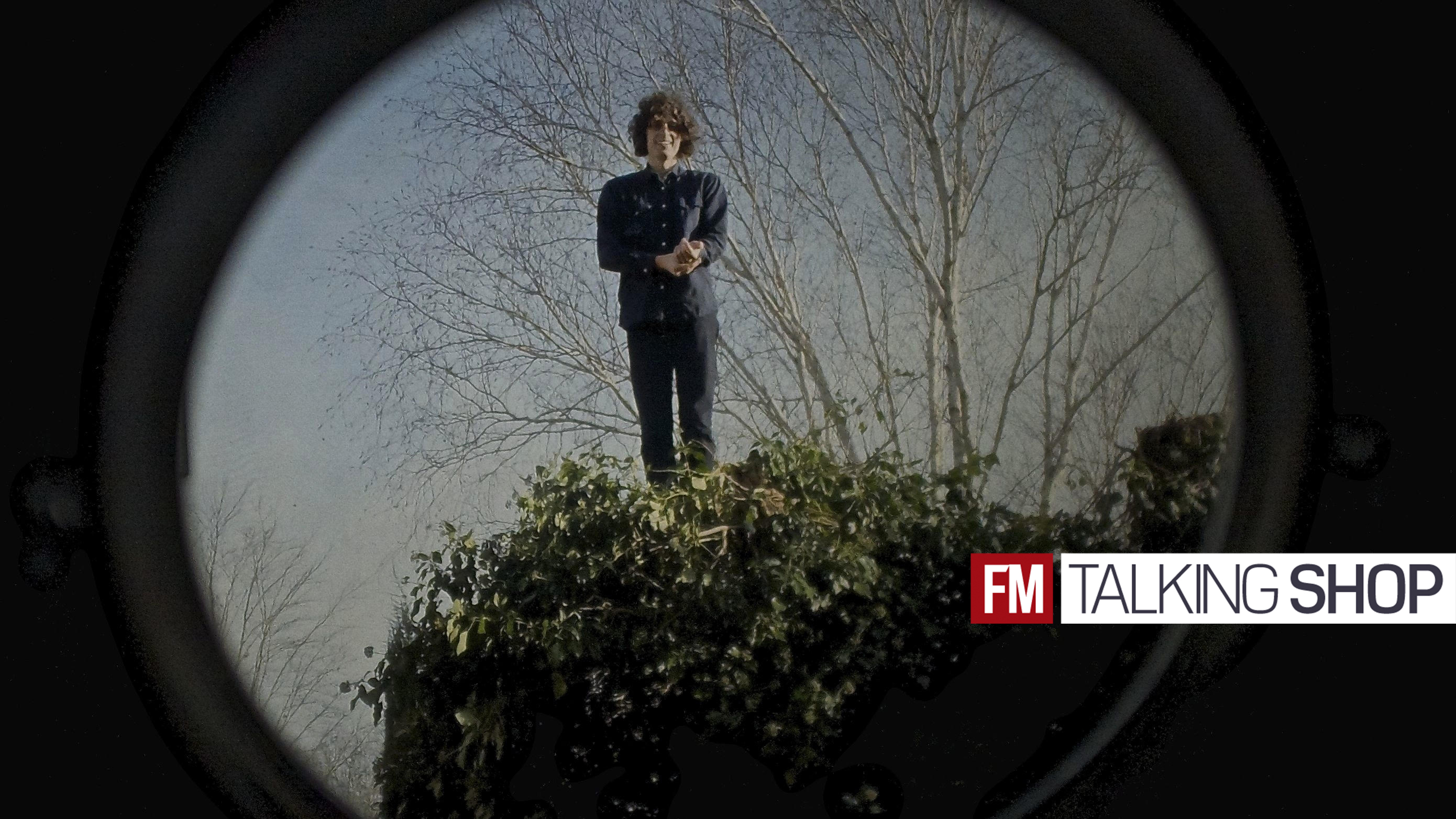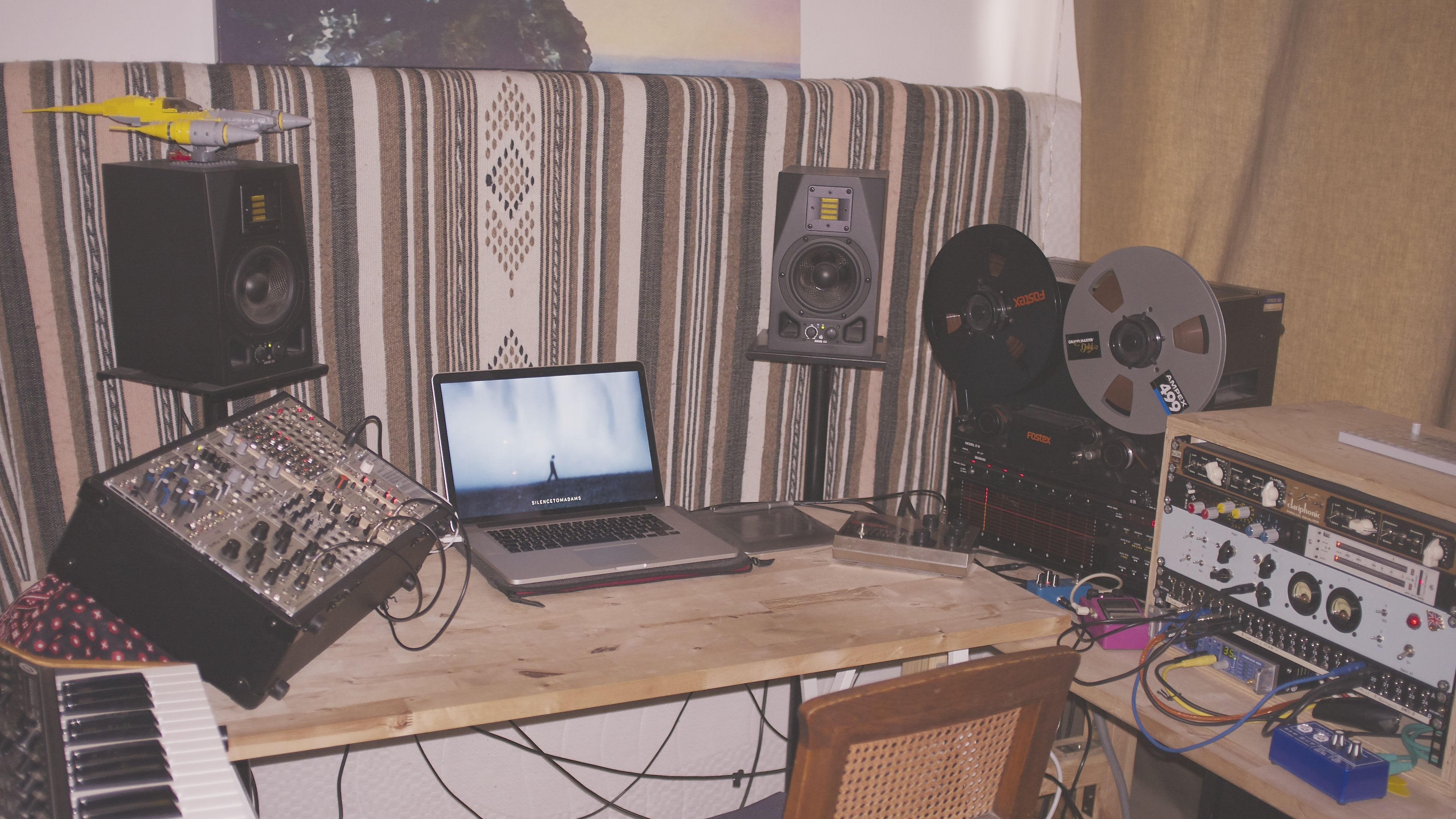Talking Shop: Tom Adams
The atmospheric artist on his studio habits

Want all the hottest music and gear news, reviews, deals, features and more, direct to your inbox? Sign up here.
You are now subscribed
Your newsletter sign-up was successful
Acoustic meets electronic in the work of Tom Adams. We caught up with him to find out more about his approach to making music, learn how he got started, and discover his top tips for producers and composers.
When did you start making music, and how did you first get started?
“I started playing piano when I was quite young, then got into electric guitar as a teenager. My parents had one of the early white Mac laptops which came with Garage Band pre-installed on it. I started messing about with that trying to record the bands I was in at school. Because none of us knew how to record I would often just sequence all the drums, bass and synth lines with MIDI then overdub vocals through the laptop mic and guitars with an SM57 on my amp. It was pretty lo-fi but a lot of fun!”

Tell us about your studio/set-up
“At the moment I work from home, I have always done this and find it to be quite productive because it allows me to be spontaneous about when I make music. Noise and neighbours is a bit of a issue in Berlin however, so right now I am looking at a few options for renting studio space nearby.
“I approach my studio setup as if it were an instrument, and like any instrument I think one of the most important things is to practice to the point of being able to play instinctively. Because of this I try to not have too many different plugins or pieces of hardware, but instead focus on really getting to know what I have as well as possible.
“When making a track I typically do the capture with hardware, and all the mixing with software. The tactile interactions you have with hardware mean that you to build up muscle memory in exactly the same way as when learning to play the piano or guitar. This is important for me because I feel more connected with the sounds I’m making than when I’m interacting through a computer screen.
Want all the hottest music and gear news, reviews, deals, features and more, direct to your inbox? Sign up here.
“I find that software is a lot more convenient for mixing though, as you can quickly and easily try different EQ and compression settings during the creative process. That said, I love analogue EQs for their ability to heavily boost frequencies and still get a musical result. I have an old Neumann mastering EQ and a Kush Clariphonic both of which are amazing for this. I also use an old Fostex E8 reel-to-reel tape machine a lot, it is very noisy but really adds great character to anything you run through it.
“From the plugin side, I have five or six Waves compression and EQ plugins, and otherwise I use mostly native Logic plugins.”
What DAW (or DAWs) do you use, and why did you choose it?
“I use Logic Pro 9. I bought it in 2010 and have been using it ever since, I chose it because it is an easy DAW to transition to from Garage Band. I’m not an expert on Logic at all, but I have been using it long enough that I’m really comfortable finding my way around.”
What one piece of gear in your studio could you not do without, and why?
“A duster! It’s amazing how dusty hardware can get and it can cause problems with your gear. Imagine how stressful it would be if not cleaning your room meant one of your plugins might suddenly decide not to work?! Otherwise I would have to say the tape machine. I run almost everything through it at one time or another, it really helps glue different parts of a track together.”
What's the latest addition to your studio?
“I recently got a Kenton USB midi host. It allows my Teenage Engineering OP1 to talk to standard 5 pin MIDI. I have been using the OP1 for years, it’s great for sampling and making interesting textures. It also has some interesting sequencers so it is cool to now to be able to connect it to my other synths.”
What dream bit of gear would you love to have in you studio?
“I always wanted to get my hands on a Korg PS-3100 but they are hard to find and even harder to afford so that’s going to stay a pipe dream I think. Otherwise I’m pretty happy with everything at the moment. Probably it would be good to upgrade my studio monitors to something with better bass response. I currently use Adam A5Xs, but I mixed my new record on Adam S3XHs at a friends studio and it was a great experience.”
When approaching a new track or project, where do you start?
“If I am writing songs then I normally start from the piano, but for more electronic/production based music I almost always start with my synths. I have three main synths, a Eurorack modular system, a Moog Sub 37 and a Teenage Engineering OP1. They are all MIDI synced together and each synth is sent to an individual channel on the tape machine. I normally start with a patch idea on the Eurorack and go from there. If something starts coming together then I just hit record on the tape machine and its all captured live. I listen back and if it feels like there is something worth developing then i record off the tape into logic and work on the track from there.”
What are you currently working on?
“I’m making a lot of electronic music at the moment. I got into building my own modular system last year and that has opened up a whole range of possibilities creatively, particularly regarding sequencing. You can do some very cool generative things on a modular which are simply not possible with piano roll or XOX style sequencers. I’m currently using it mostly as a drum machine, it is a lot of fun!”
Tom Adams' essential music making tips...
There is not a right way to do it
“There is often a most ‘technically correct’ way to do it, but it doesn’t always follow that it is the best thing for your mix. I am self taught with production and with the help of many YouTube videos have been slowly teaching myself the science behind various aspects of mixing. It is really useful stuff to know, but at the end of the day science and music are two different things and sometimes you have to use your ears to really work out what is best for your track. You often hear about the ‘correct’ way to mix and process a particular instrument; there isn’t a correct way, there is just a most common way. I think it is important to realise this difference and have the confidence to just trust your instinct if you want to do something really off the wall with your sound processing.”
Mix at different volumes
“A lot of mixing is about focus, drawing the listener’s attention to the right thing at the right time. I find a good way to check this is to turn your audio down to the point you can barely hear it. If your mix is well focussed then you should only be able to just about hear the main part of your track and nothing else. If you can hear multiple things then work out what is the important one and turn the other sounds until you can’t hear them. When you turn the volume back up then I often find that the mix is already feeling nicely focussed and its just a matter of tweaking.”
You don’t need good gear to make good music (but it helps)
““Before I invested in some decent microphones and pre amps, I always felt like what I was recording was somehow inferior in sound quality to music recorded through more expensive pro gear. I realise now that its less about a difference in sound quality, but more about a difference in consistency of results.
“It is totally possible to get a really incredible drum sound with a pair of cheap microphones and a basic sound card. However, in many situations the sound you get is more likely to be ok rather than fantastic. On the other hand, if you have a few top-end drum microphones recorded through a some great preamps, then probably 99% of your your recordings are going to sound pretty good. Of course, exactly how good is up to the skill of the engineer/producer/performer. I always feel however, that a good producer should be able get an interesting recording with any type of gear.
“Ultimately it is not about how well recorded something is, it’s about trying to create some great music. In my opinion it doesn’t really matter what gear you use so long as the sounds you record are capturing the energy and emotion of what’s going on. I would always rather listen to some good music recorded badly, than some bad music recorded well.”


Future Music is the number one magazine for today's producers. Packed with technique and technology we'll help you make great new music. All-access artist interviews, in-depth gear reviews, essential production tutorials and much more. Every marvellous monthly edition features reliable reviews of the latest and greatest hardware and software technology and techniques, unparalleled advice, in-depth interviews, sensational free samples and so much more to improve the experience and outcome of your music-making.
